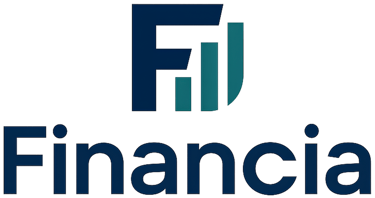
BLOG - FINANCIA
The Main Actors of Financial Markets
Financial markets function due to the interplay of various key actors, each fulfilling distinct roles. Understanding the responsibilities and functions of these professionals provides insight into how markets operate and the dynamics driving investment decisions.
FINANCIAL MARKETS
Mathéo Bockel
6/1/20252 min read


Traders and Brokers
Traders actively buy and sell financial instruments like stocks, bonds, commodities, currencies, and derivatives. They analyze market trends, economic data, and technical indicators to execute profitable trades. Brokers facilitate trading by connecting buyers and sellers, executing trades on behalf of clients, and providing essential market access. Brokers may also offer investment advice and research.
Portfolio Managers and Asset Managers
Portfolio managers design investment strategies, selecting assets to meet specific financial goals or risk tolerance. They manage funds or individual portfolios, constantly monitoring and adjusting holdings. Asset managers handle substantial investment pools for institutions like pension funds, insurance companies, or mutual funds, implementing long-term investment strategies.
Investment Bankers
Investment bankers advise corporations, governments, and institutions on financial transactions like mergers and acquisitions (M&A), initial public offerings (IPOs), and issuing debt or equity. They also structure complex financial products, provide market insights, and assist clients in raising capital through securities markets.
Analysts (Equity, Credit, and Economic Analysts)
Equity analysts evaluate publicly traded companies, providing forecasts and recommendations on stocks. Credit analysts assess borrowers’ ability to meet debt obligations, crucial for bond market investors. Economic analysts interpret macroeconomic trends and indicators, influencing asset allocation and market predictions.
Financial Advisors and Wealth Managers
Financial advisors guide individuals or families, assisting with investment planning, retirement strategies, and wealth preservation. Wealth managers typically serve affluent clients, offering personalized financial solutions, including tax strategies, estate planning, and sophisticated investment portfolios.
Risk Managers
Risk managers identify, assess, and mitigate financial risks within institutions. They use tools like stress tests, value-at-risk (VaR) models, and scenario analyses to safeguard organizations from market volatility, credit risks, operational failures, and regulatory issues.
Regulators and Central Banks
Regulators enforce rules and standards to maintain market integrity and protect investors. Examples include the Securities and Exchange Commission (SEC) in the U.S. and the Financial Conduct Authority (FCA) in the U.K. Central banks, such as the Federal Reserve, European Central Bank, and Bank of England, influence markets through monetary policy, interest rate decisions, and liquidity management.
Rating Agencies
Rating agencies evaluate the creditworthiness of entities issuing debt instruments. Major rating agencies like Moody’s, Standard & Poor’s (S&P), and Fitch assign credit ratings that significantly impact borrowing costs and investor perceptions.
Market Makers
Market makers provide liquidity by continuously buying and selling financial assets, enabling smoother transactions and more efficient market operations. They profit primarily from bid-ask spreads.
Custodians and Clearing Houses
Custodians hold and safeguard financial assets, ensuring proper settlement of transactions. Clearing houses guarantee trade settlement, reducing counterparty risks and maintaining market stability.
By clearly understanding each of these roles, investors can appreciate how financial markets function, the interactions between different participants, and the complexities behind everyday market transactions.
GET IN TOUCH
Have a question, a partnership idea, or want to share your thoughts about finance?
At Financia, we value meaningful connections with our readers and collaborators.
Reach out and let’s start a conversation, your insights could inspire our next article.
